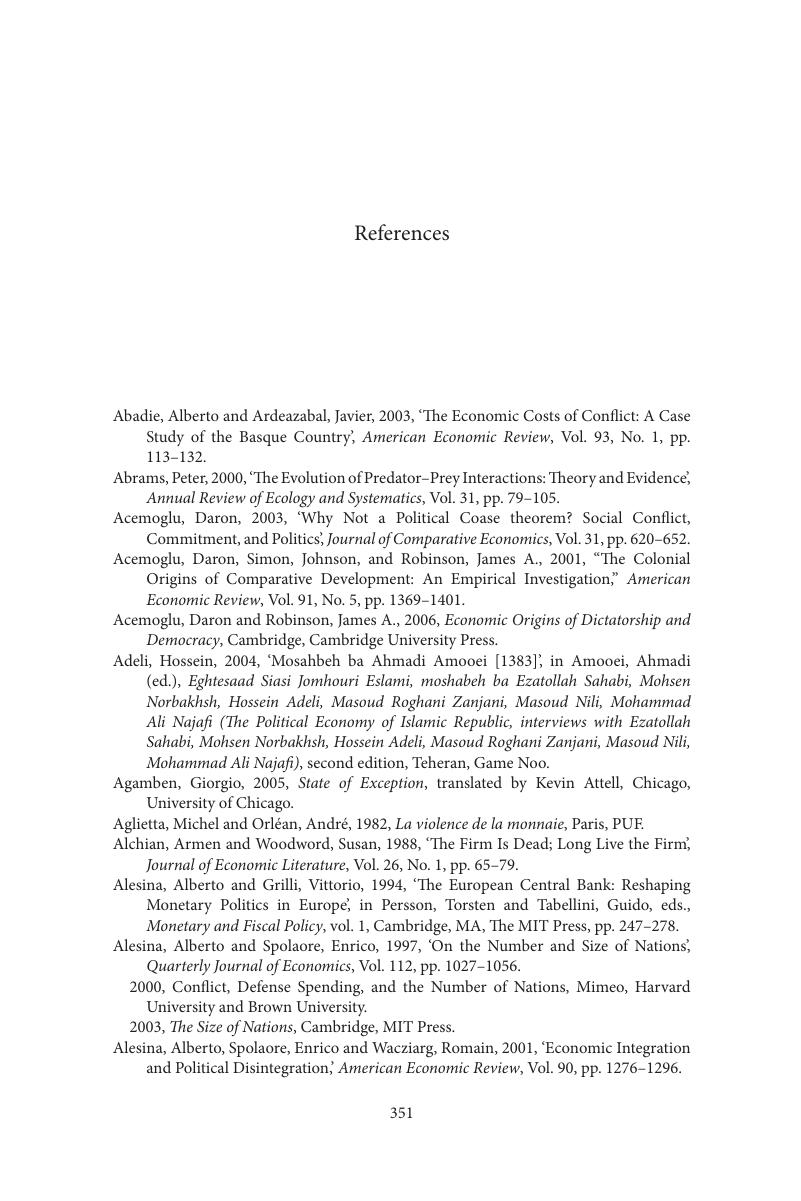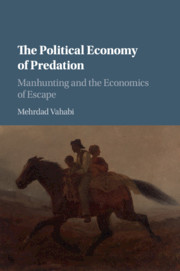Book contents
- The Political Economy of Predation
- Reviews
- The Political Economy of Predation
- Copyright page
- Dedication
- Contents
- Tables and Figures
- Book part
- Prologue
- 1 Introduction
- 2 The Meaning of Predation
- 3 Domination, Manhunting and Conflictual Costs and Benefits
- 4 Rational Conflict Theory, Paradox of War and Strategic Manhunting
- 5 Appropriation, Violent Enforcement and Transaction Costs
- 6 Appropriation, the State Space and the Economics of Escape
- 7 Predatory Nature of the State and Democracy
- Epilogue
- References
- Index
- References
References
Published online by Cambridge University Press: 05 December 2015
- The Political Economy of Predation
- Reviews
- The Political Economy of Predation
- Copyright page
- Dedication
- Contents
- Tables and Figures
- Book part
- Prologue
- 1 Introduction
- 2 The Meaning of Predation
- 3 Domination, Manhunting and Conflictual Costs and Benefits
- 4 Rational Conflict Theory, Paradox of War and Strategic Manhunting
- 5 Appropriation, Violent Enforcement and Transaction Costs
- 6 Appropriation, the State Space and the Economics of Escape
- 7 Predatory Nature of the State and Democracy
- Epilogue
- References
- Index
- References
Summary

- Type
- Chapter
- Information
- The Political Economy of PredationManhunting and the Economics of Escape, pp. 351 - 390Publisher: Cambridge University PressPrint publication year: 2015



